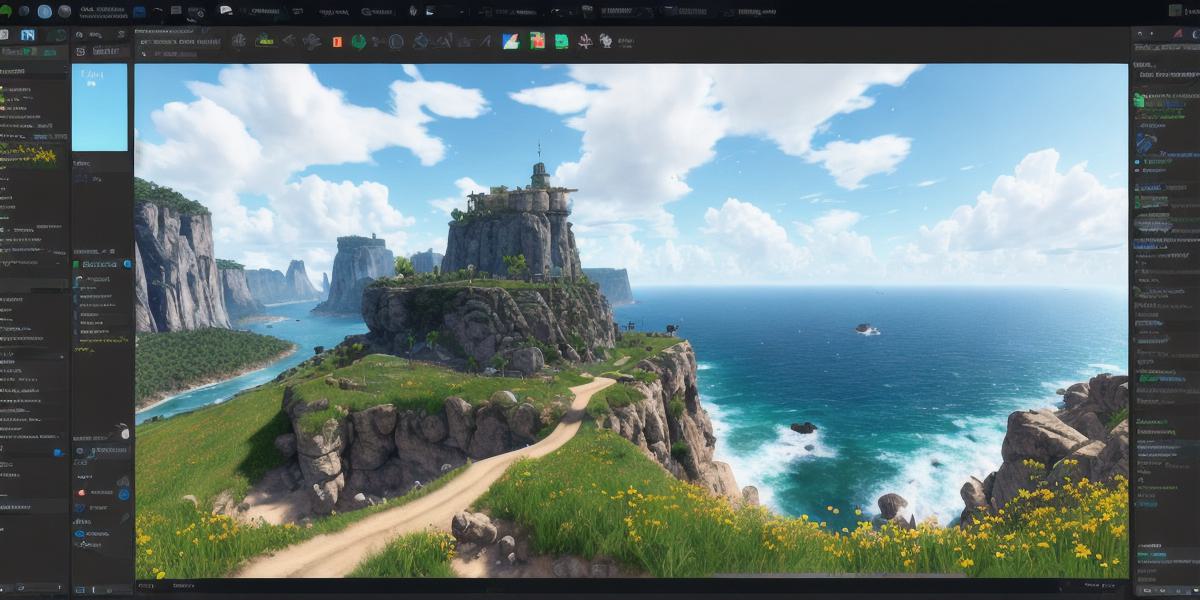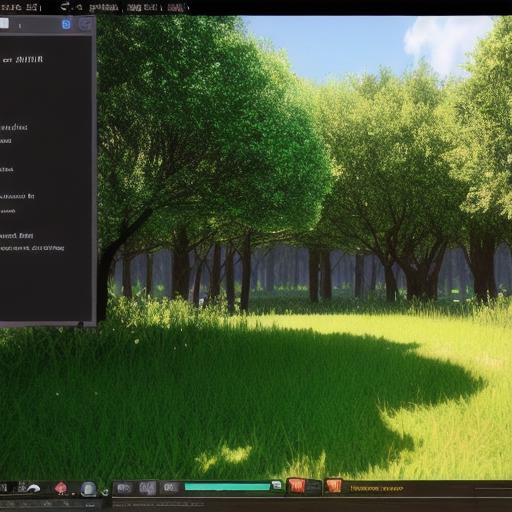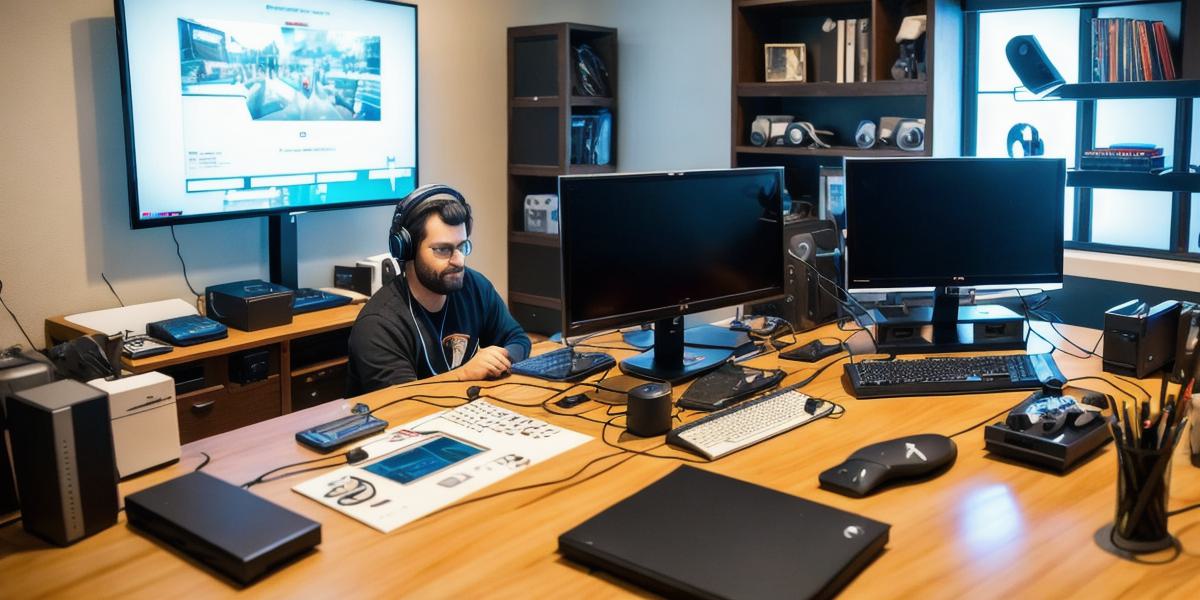As a game developer, one of the most important decisions you’ll make is which tools to use for your projects. With so many options available, it can be overwhelming to choose the right ones. In this article, we will explore some of the best game development tools for using Unity. We will discuss their features, advantages, and disadvantages, as well as real-life examples of how they have been used in the industry.
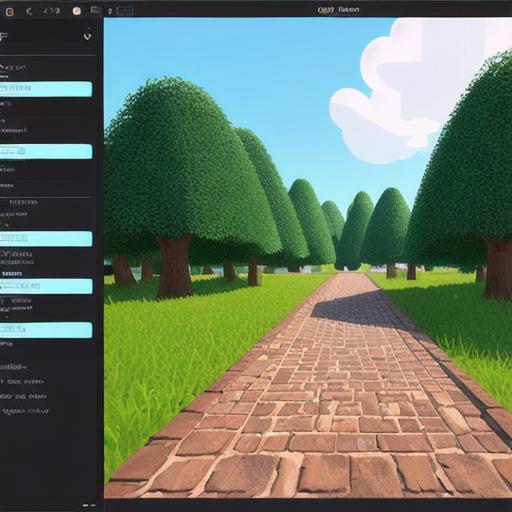
Before we dive into the tools themselves, let’s first talk about what Unity is. Unity is a popular game engine that allows developers to create games for multiple platforms, including PC, mobile, and consoles. It offers a wide range of features and tools that make it easy for beginners and experienced developers alike to create high-quality games.
Now that we have an understanding of what Unity is, let’s take a look at some of the best game development tools for using Unity:
- Visual Studio Code
Visual Studio Code (VS Code) is a popular code editor that is widely used by developers for building software applications, including games. It offers a range of features such as debugging, code completion, and syntax highlighting that make it easy to write, test, and debug code quickly. VS Code also has a large community of extensions available that can be used to enhance its functionality even further. - Blender
Blender is a free and open-source 3D modeling and animation software that is widely used in the gaming industry. It offers a range of features such as sculpting, texturing, rigging, and animation that make it easy to create high-quality 3D assets for your games. Blender also has a large community of users who contribute to its development and provide support and resources. - Unity Asset Store
The Unity Asset Store is an online marketplace where developers can buy and sell game assets, including pre-built environments, characters, and effects. It offers a range of assets for different genres and styles, making it easy to find the right ones for your project. The Unity Asset Store also has a rating and review system that allows users to see how other developers have used the assets in their projects. - Zbrush
Zbrush is a professional 3D modeling software that is widely used in the gaming industry. It offers a range of features such as sculpting, texturing, and animation that make it easy to create high-quality 3D assets for your games. Zbrush also has a large community of users who contribute to its development and provide support and resources. - Photoshop
Photoshop is a popular image editing software that is widely used in the gaming industry for creating textures, logos, and other graphics. It offers a range of features such as layers, filters, and effects that make it easy to create high-quality images quickly. Photoshop also has a large community of users who contribute to its development and provide support and resources.
Now that we have discussed some of the best game development tools for using Unity, let’s take a look at how they can be used in practice:
- Building a 3D Game with Blender and Unity
Blender is a popular tool for creating 3D assets, while Unity is a game engine that can be used to bring those assets to life. Here’s how you could use them together:- Start by creating your 3D assets in Blender. You can use it to sculpt, texture, and animate your characters and environments.
- Once you have created your 3D assets, export them from Blender as FBX files.
- Import the FBX files into Unity. You can then assign the textures and animations to your assets in Unity.
- Finally, use Unity’s built-in tools to add interactivity and gameplay elements to your game. This could include creating levels, adding enemies, and implementing user input.
- Creating a 2D Game with Visual Studio Code and Unity
Visual Studio Code is a popular code editor that can be used to write the code for your game. Here’s how you could use it in conjunction with Unity:- Start by creating your game assets, such as characters, backgrounds, and effects, in Blender or another 3D modeling software.
- Export your assets as PNG or other image files.
- In Visual Studio Code, create a new folder for your project and navigate to it in the file explorer.
- Create a new C script file in the project folder. This is where you will write the code for your game.
- Use Unity’s built-in tools to import your assets and add them to the scene. You can then use the C script to add gameplay elements such as movement, collision detection, and user input.
- Using the Unity Asset Store for Game Assets
The Unity Asset Store is a great resource for finding pre-built game assets that you can use in your own projects. Here’s how you can use them:- Open Unity and create a new project.
- In the Unity Hub, search for the asset you want to use. You can filter by category, price, and rating to find the right one.
- Once you have found an asset that you like, click on it to view its details page. Here you will find information about its features, requirements, and a preview of what it looks like in action.
- To purchase the asset, click on the "Buy Now" button. You will be prompted to enter your payment information and create a Unity account if you don’t already have one.
- After the purchase is complete, you will receive a download link for the asset files. You can then import them into your project and use them as needed.
- Using Zbrush for 3D Modeling in Unity
Zbrush is a powerful tool for creating high-quality 3D assets. Here’s how you can use it with Unity:- Start by opening Zbrush and creating a new project.
- Use Zbrush to sculpt, texture, and animate your characters and environments. You can also use it to create complex shapes and details that are difficult to achieve with other tools.
- Export your assets from Zbrush as FBX files.
- Import the FBX files into Unity. You can then assign the textures and animations to your assets in Unity.
- Finally, use Unity’s built-in tools to add interactivity and gameplay elements to your game. This could include creating levels, adding enemies, and implementing user input.
- Using Photoshop for Creating Textures in Unity
Photoshop is a popular image editing software that can be used to create textures for your game. Here’s how you can use it with Unity:- Start by opening Photoshop and creating a new document.
- Use Photoshop to create the texture you need, using layers, filters, and effects to achieve the desired look.
- Once you have created the texture, save it as a PNG file.
- Import the PNG file into Unity. You can then assign the texture to your game objects in Unity.
- Finally, use Unity’s built-in tools to add interactivity and gameplay elements to your game. This could include creating levels, adding enemies, and implementing user input.
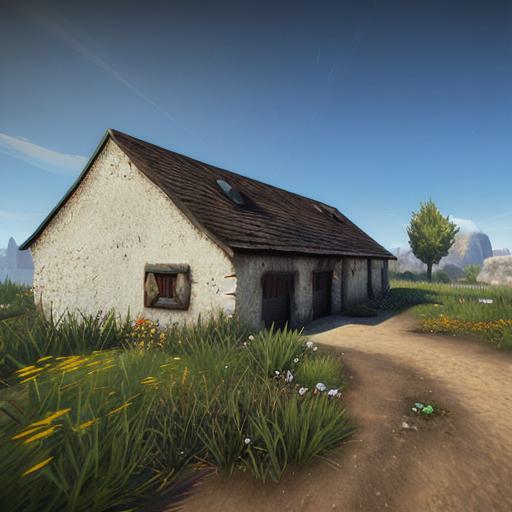
FAQs:
Q: What is the best way to learn game development with Unity?
A: The best way to learn game development with Unity is to start by familiarizing yourself with the basics of programming and 3D modeling. There are many online courses and tutorials that can help you get started, as well as community forums where you can ask questions and seek advice from experienced developers.
Q: Can I use Unity without a game engine license?
A: Yes, you can use Unity without a game engine license if you have a free version of the software. However, if you want to create commercial games or use advanced features, you will need to purchase a license.
Q: How long does it take to create a game with Unity?
A: The time it takes to create a game with Unity depends on the complexity of the game and the experience of the developer. Simple 2D games can be created in a few weeks, while more complex 3D games can take several months or even years to complete.
Conclusion:
Unity is a powerful game engine that can be used to create games for a variety of platforms, including PC, mobile, and consoles. To get started with Unity, you will need to download the software and familiarize yourself with its basics. Once you have a good understanding of the engine, you can start building your own games using a variety of tools and techniques, including 3D modeling, programming, and game design. With the right skills and resources, you can create professional-quality games that are fun and engaging for players of all ages.
